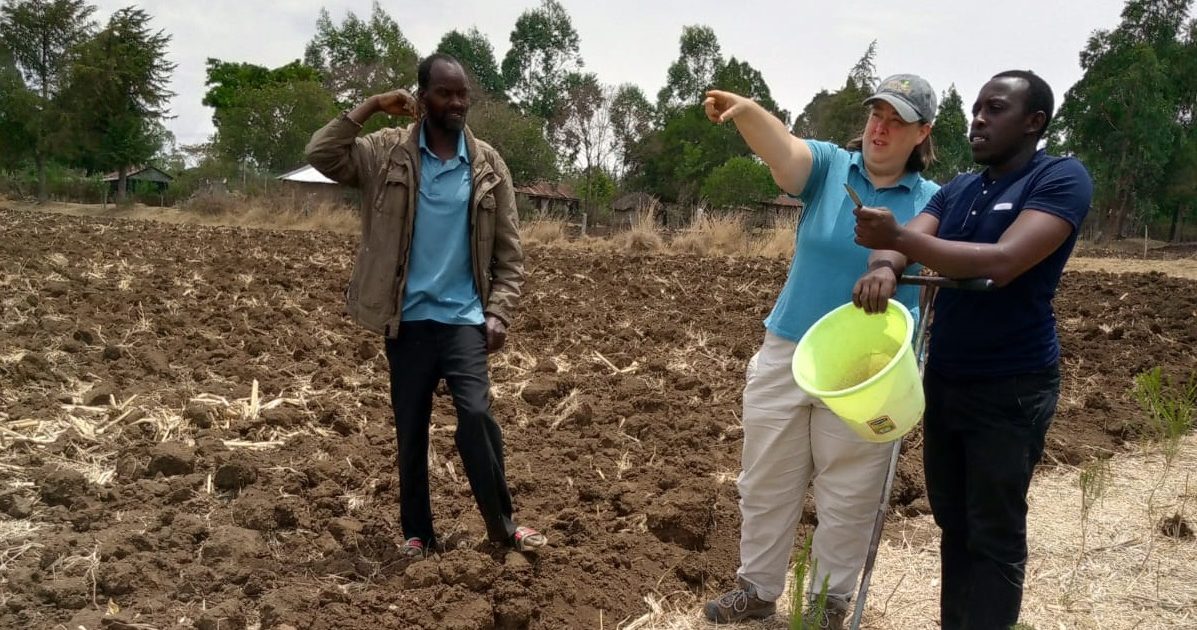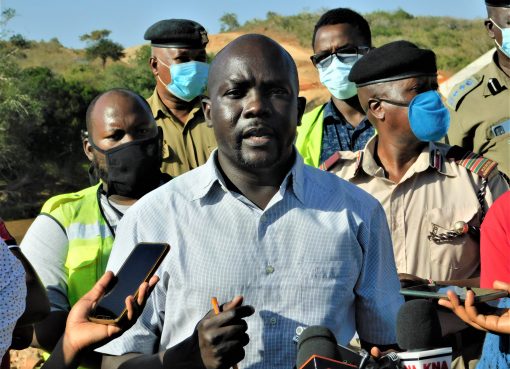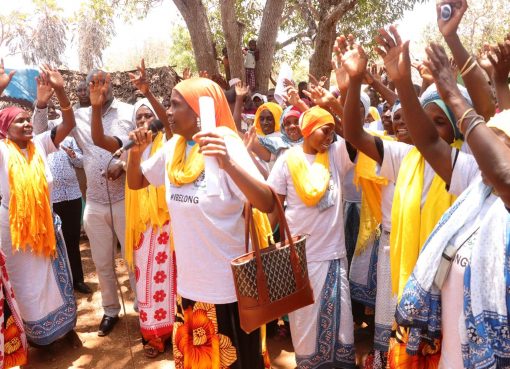Egerton University is collaborating with Michigan State University (MSU) in conducting research on the proper management of agricultural soils in a bid to transform Kenya’s agriculture into a modern, innovative, and commercially oriented sector.
Researchers from the two institutions have expressed concern that the country’s ballooning population has led people to mono-crop and livestock keeping in fragile ecosystems such as wetlands, steep slopes, and riparian areas where soil stability is already compromised.
According to Principal Investigator Professor Nancy Mungai of the Department of Crops, Horticulture, and Soils at Egerton University, the research project will focus on Uasin Gishu, Kakamega, and Trans Nzoia counties in Western Kenya.
Professor Mungai, who is teaming up with Dr Lisa Tiemann from Michigan State University’s Department of Plant, Soil, and Microbial Sciences, indicated that Sub-Saharan Africa’s traditional agricultural practices are becoming unsustainable due to rising population density, leading to low yields.
Professor Mungai explained that soil health was the foundation of agricultural development, adding that there is no way the problem of food security can be addressed without touching on the deteriorating condition of Kenyan soils.
“Soil is the key factor in agricultural production and the largest reservoir of terrestrial carbon, vital to the mitigation of the effects of climate change. Poor farming practices result in heavy soil compaction, loss of biodiversity and fertility, nutrient leaching, and erosion. Long-term effects of such land degradation include landslides, desertification, and invasion by intrusive species,” she observed.
The don stated that healthy soils protect biodiversity and contribute to healthy food, free of harmful chemicals that are detrimental to human, animal, and plant health. She added that healthy soils also mean healthy water systems, as no chemicals are discharged into rivers and other water sources.
The research is part of the Sustainable Agricultural Intensification and Rural Economic Transformation (SAIRET) initiative, supported by the Alliance for African Partnerships (AAP) and the African Development Bank (ADB).
The initiative will also incorporate comprehensive soil testing on the largest maize plot of the 350 sampled farmers and detailed inquiries about the farmers’ soil management practices that are either applied or not. The sampled farmers will also be required to provide information about available organic matter resources.
According to an African Union report, 99 per cent of the soils in tropical and sub-Saharan Africa are, in one way or another, “sick’. They have no humus (organic carbon in scientific parlance).
According to a report released by the Food and Agriculture Organization (FAO) of the United Nations, it is estimated that two billion people worldwide suffer from a lack of micronutrients due to a drastic decrease in the levels of vitamins and nutrients in food over the past 70 years.
The climate change crisis has drastically affected food production, especially in Africa.
To mitigate the crisis, Professor Mungai underscored the importance of creating awareness about the importance of maintaining a healthy ecosystem and upholding good soil management.
She stated that farmers should be advised on the importance of conducting soil tests to help them determine the levels of acidity or alkalinity before planting their crops.
The don added that the public should be taught how to prevent soil erosion, which leads to soil degradation.
“They need to embrace organic farming, as industrial chemicals like pesticides and herbicides end up killing beneficial microorganisms that provide plants with nutrients. Good soil management is key to mitigating the effects of climate change and boosting food production,” Professor Mungai explained.
She further said that toxic fumes and water waste should be treated before being released into the environment and suggested that county governments need to come up with a policy framework and supporting legislation to ensure proper soil management as part of their climate action and food security agendas.
According to the United Nations, soil hosts 25 per cent of the planet’s biodiversity; yet, experts know little about the microorganisms found in soil compared to those in plant species.
“Up to 90 per cent of living organisms live or spend part of their lifecycle in soils. It is estimated that only one per cent of soil microorganism species are known, compared to 80 per cent of plant species,” says the UN.
According to Dr Esther Gikonyo, a soil fertility and plant nutrition scientist at the Kenya Agricultural and Livestock Research Organization (KALRO), poor soil health is a serious problem facing crop production in the country.
She revealed that 63 per cent of soils in high and medium rainfall areas in Kenya are affected by acidity. The acidity greatly jeopardizes the fertility of the soil, which adversely affects crop production.
Dr Gikonyo said the soil in such areas has a pH below 5.5 and is considered acidic.
“The serious problem affecting crop production in high and medium rainfall areas in Kenya is acidity. The acidity causes infertility in farms,” Dr Gikonyo said.
She said the acidity must be dealt with properly in order to boost food production.
The best way to deal with acidity is to undertake soil tests so that a farmer is advised on the appropriate amount of lime to use to fix the issue.
“The time has come when farmers must embrace soil testing. The soil test helps to identify the level of acidity in the soil so that farmers are advised accordingly on how to apply lime,” Dr Gikonyo indicated.
Apart from testing the acidity of the soil, Dr Gikonyo noted that soil testing also helps identify deficient essential soil nutrients needed by crops to yield well.
After the test is done, a farmer is advised on the type of fertilizer to apply to reclaim the soil’s fertility. She encouraged farmers to take soil from their farms for testing in laboratories to enable them to acquire good yields.
“Soil testing is like a diagnosis done to human beings in hospitals. There are 16 essential soil nutrients that crops require. The test will enable the discovery of the missing nutrient, and the farmer will be advised on the type of fertilizer to apply for the restoration of soil fertility,” Dr Gikonyo explained.
It has also emerged that some inorganic fertilizers are not made of the required components; hence, they need to be tested. Dr Gikonyo observed that the fertilizers should be tested to prove the availability of the ingredients indicated on their packets.
“As researchers, we have discovered that some fertilizers do not contain the ingredients indicated on the packets. I urge county governments and national government officials to intervene by cushioning farmers from those who manufacture unsuitable fertilizers,” she said.
Experts have warned that the condition of Kenyan soils is so bad that farmers are harvesting as few as five bags of maize per acre in places where they used to harvest 30 bags in the 70s and 80s.
Many years of chemical fertilizer use in maize and sugar belts have rendered the soils unsuitable for agriculture unless drastic measures are taken.
Chemical fertilizers such as diammonium phosphate (DAP), urea, and CAN have been overused, yet most farmers continue using them for lack of knowledge on their proper use.
By Jane Ngugi and Angela Cherotich





